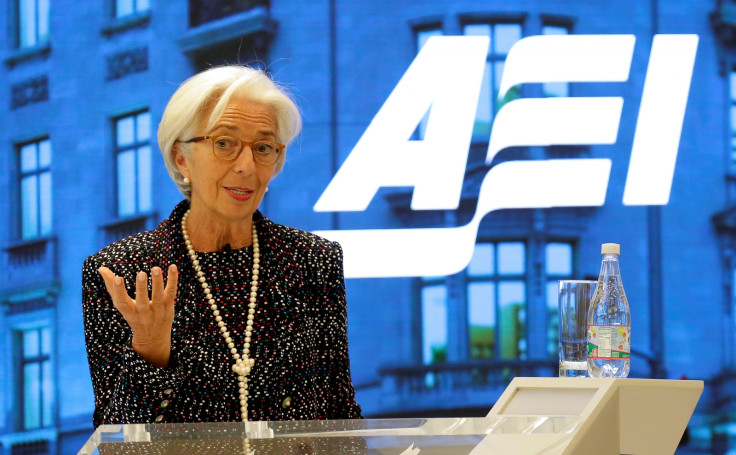Christine Lagarde warns governments to take action to counter slowdown in global productivity
Productivity in advanced economies has dropped to 0.3% from a pre-crisis average of 1%.

IMF chief Christine Lagarde delivered a speech at the American Enterprise Institute in Washington DC on Monday (April 3) and highlighted headwinds obstructing global productivity. The rapidly aging population, along with instability in trade and unresolved residual effects of the 2008 financial crisis have largely attributed to the slowdown, which is also impacting emerging markets like China.
Lagarde said that potential benefits of the fourth industrial revolution, which has brought about 3-D printing and driver-less cars, has not equated to a rise in productivity according to statistical measures.
The slowdown following the global economic crisis in particular has delivered a serious blow to GDP levels in advanced economies.
She further warned that the continued trend of sluggish productivity could adversely affect the current unprecedented rise in global living standards. If productivity were to consistently deteriorate, inequality and debt obligations within nations would grow more unmanageable, thereby threatening financial and social stability within certain nations. Productivity in advanced economies has dropped to 0.3% from a pre-crisis average of 1%
Lagarde also proposed that better government measures could be implemented to foster innovation as economies cannot solely rely on market forces, such policies could counter the productivity slowdown.
"At the same time, various policy barriers may actually impede innovation", she added.
"We at the IMF therefore believe that all governments should do more to unleash entrepreneurial energy. They can achieve this by removing unnecessary barriers to competition, cutting red tape, investing more in education, and providing tax incentives for research and development (R&D)."
Bank of England chief economist Andy Haldane had also recently delivered a speech on the UK's productivity puzzle at the London School of Economics. He stated that the nation's record low unemployment rate was being sustained by rising inequality and decrease in productivity.
© Copyright IBTimes 2025. All rights reserved.





















